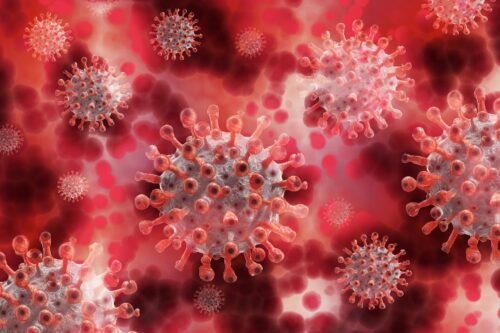 Governor Phil Murphy and New Jersey Department of Health Commissioner Judy Persichilli announced Friday evening that the New Jersey Department of Health has identified a case of the Omicron variant (B.1.1.529) in a traveler to the state. The individual, an adult female, who is a fully vaccinated Georgia resident, had recently traveled to South Africa.
Governor Phil Murphy and New Jersey Department of Health Commissioner Judy Persichilli announced Friday evening that the New Jersey Department of Health has identified a case of the Omicron variant (B.1.1.529) in a traveler to the state. The individual, an adult female, who is a fully vaccinated Georgia resident, had recently traveled to South Africa.
Since testing positive on November 28, the woman has remained in isolation. She experienced moderate symptoms and is now recovering after receiving care in a North Jersey emergency department. The New Jersey Department of Health laboratory performed sequencing on the specimen to confirm it was the Omicron variant.
“The Omicron variant is among us and we need to take steps to stop its spread. It is vital that residents remain as vigilant as possible as we await more information about the variant,” said Governor Murphy. “Vaccinations and mask wearing have proven to be an effective tool to reduce the spread of COVID-19, and I urge everyone ages 18 and over to receive a booster.”
“With cases increasing and the identification of the Omicron in the state, the fight against COVID-19 is not over,” Health Commissioner Judy Persichilli said. “We are still learning about the Omicron variant, but we have tools to stop the spread of the virus, most important among them is to get vaccinated and get a booster dose. The public should continue to mask up, get tested if they have symptoms, physically distance, avoid crowded events, stay home when sick and wash hands frequently.”
On November 26, the World Health Organization classified this new variant, B.1.1.529, as a Variant of Concern and named it Omicron. On November 30, the United States also classified it as a Variant of Concern. The New Jersey Department of Health has been working with other states, local health departments, clinical laboratories, hospitals, and Centers for Disease Control and Prevention (CDC) to rapidly identify individuals who may have been infected with the Omicron variant.
Studies show after getting vaccinated against COVID-19, protection against the virus and the ability to prevent infection may decrease over time. Booster doses provide essential additional protection. While more than 70 percent of residents have received their primary vaccine series, only 31 percent of residents eligible have received a booster.
The CDC recommends that all individuals 5 and older should get vaccinated and those 18 and older receive a booster dose.

I am sure Stevenn is crying over this
If the person that has it was vaccinated and still got it, why is the way to stop its spread through vaccinations? It clearly isn’t working. The vaccine was developed for the first variant of March 2020, it is worthless over the new variants.
Hashem Yishmor!
Guess it’s a slow news day…. None of the medical professionals who have studied the omicron think it’s much of an issue. The only ones harping on it are the ones pushing the Vaccine. Fear mongering! And losing any credibility they still have.
Vaccine? When some of the people carrying this variant are triple vaccinated? Am I missing something?
In the OMNI hotel they serve CORN , it’s called Omnicorn or Omicron, or maybe the Corn or Acorn was grown in a backyard or on a tree of Lakewood’s Omni Ct. My first car was a 1978 Dodge OMNI (what a piece of junk that was). Oh! It’s O’Micron